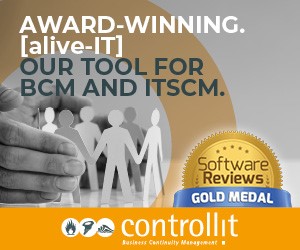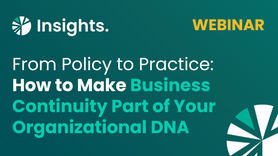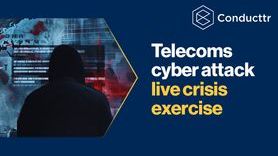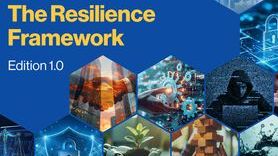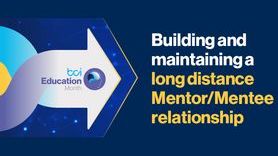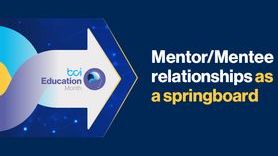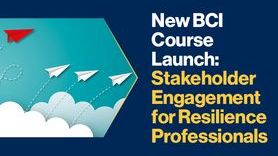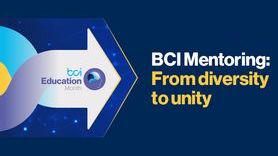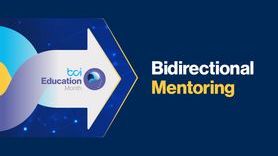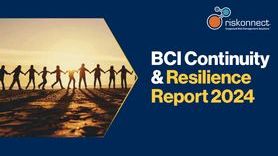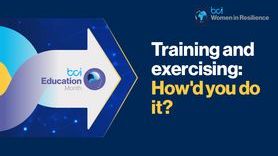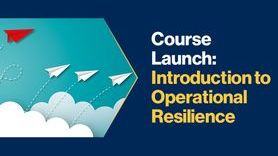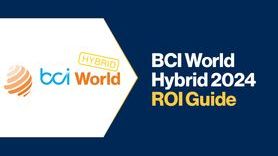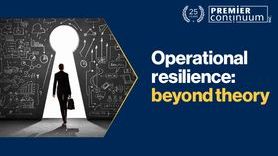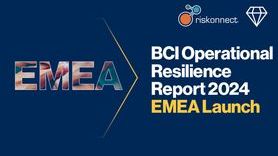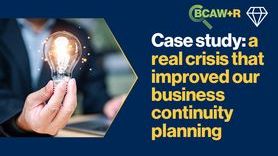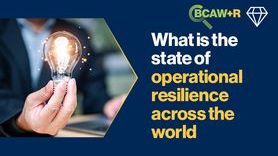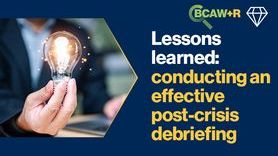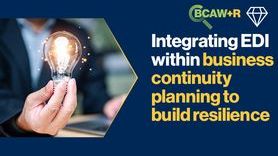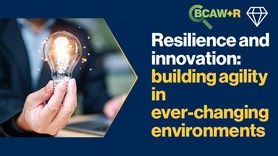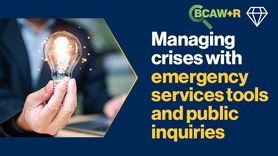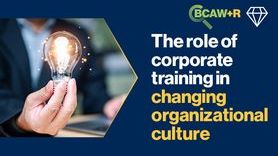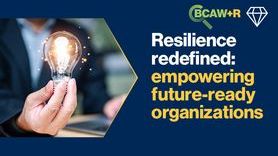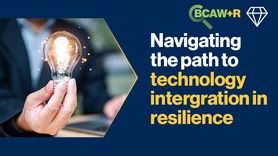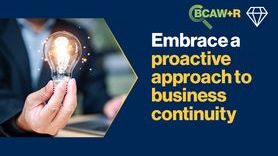In Conversation with Thokozile Simelane AMBCI
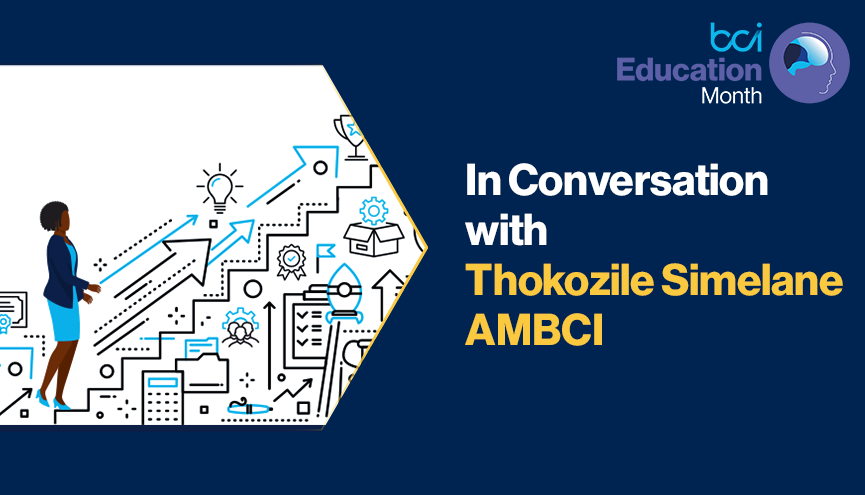
As part of The BCI’s Education Month, we spoke with Thokozile Simelane AMBCI, Business Continuity (BC) Manager in the South African financial industry, to cover a range of topics, including how to be an effective subject-matter expert (SME) within your organization.
Can you tell us about your experience in the field of Business Continuity (BC) and resilience?
I have 12 years’ experience in BC and Resilience. I started out working for a financial institution as a risk analyst. As part of this role, some BC responsibilities were assigned to me. I got involved and began to love this field that we are in.
After moving between a couple of financial institutions, I started specializing in Business Continuity and held various BC Manager positions.
In an ever-changing environment, how important are training and education to make sure that you are prepared for newly emerging threats and risks?
From my perspective it is very important, especially training. Once you are in Business Continuity Management (BCM) or Resilience, you can’t be stagnant. Traditionally, the role was primarily doing Business Impact Analysis (BIA) and Business Continuity Plans (BCPs) and ensuring that organizations were testing their plans. However, as the world changes and the threat landscape expands, such as through pandemics and climate risks, one has to stay well-informed to enable organizations to effectively anticipate, prepare for, respond to, and adapt to incremental change and sudden disruptions. In my view, this is what makes us subject matter experts (SME) and is one of the reasons that organizations depend on us.
As SME’s, we need to stay on top of the ever changing regulatory environments that we work in, such as with the introduction of the Basel regulatory directives for Operational Resilience in the financial sector. It is these directives, and balancing them with our organization’s needs, that informs our framework. Therefore, we have to clearly understand the requirements and how it impacts our organizations in order to appropriately advise our businesses and adapt our frameworks accordingly.
What role have educational resources and BC training played in your career?
In my career, it has obviously played a significant role in growing me from a risk analyst to where I am today - a BC Manager for a large international financial institution. When I obtained my BCI certificate, this certification gave me a vast knowledge of what the field is about and what the details encompass. It is not only about BIAs and BCPs, one also looks at the entire value chain of Operational Resilience. Staying abreast with training allows one to be able to reinforce their career. The programmes available on The BCI site helps me stay up to date with the latest thinking and global best practices in this discipline.
As an experienced BC practitioner, what skills would you say are important to build in this sector?
Agility, building relationships and collaboration with all stakeholders in an organization are the three most important skills to build. As with most Risk Management functions, Operational Resilience is not at the top of the agenda, except when there is an event such as the pandemic or a major business disruption. The key here, for me, is to build one’s brand and deliver value to the organization, which in turn will organically develop to becoming the “go-to” person for Operational Resilience.
What skills are you looking to reinforce/acquire in the future?
Particularly with me, it would be in the technological world, which is a key part of Operational Resilience and will become more so in the future. As a BC practitioner, I often find myself at loggerheads with IT departments due to the jargon they use that is unfamiliar to me. My approach so far has been to ask technology specialists to use layman’s terms for concepts that are new to me. In doing so, we meet each other halfway with technology terminology and Operational Resilience terminology. My objective is to understand what the impacts of the technology disruptions are on my business and where the risks lay, in order for me to cross that bridge between IT and business.
How important is it to share experience and knowledge with other BC practitioners, as well as with those just entering the industry?
In an environment where the world is changing so much, I think knowledge sharing is important between BC practitioners because there is no one-size-fits-all solution for different organizations and every practitioner has different experience. Flexibility and agility are required to ensure that newcomers into the industry are kitted with the adequate knowledge to make a difference in their organizations early on.
As SMEs, we also need to be able to guide business by sharing knowledge with staff, through forums, awareness programmes and training. The objective is to embed thinking and highlight the role of each staff member in the process in order to bring the realization that BC starts with each one of us and is not only something that gets done by a practitioner.
What are the most effective ways to share knowledge?
I have found that regular forums, collaborations, and mentorships with like-minded professionals are the best platforms for sharing knowledge and exchanging experiences. It is through sharing that we learn and grow.
What can young professionals do to prepare themselves when joining this field from a different industry? What are organizations looking for from young professionals joining this field?
Irrespective of industry, the discipline is a constant. Joining a specialized institute, such as the BCI, is a recommended first step. This will allow a professional new to the field to get exposure to the methodology and best practices. Young professionals can also qualify themselves through various courses and certifications that the BCI has to offer. Organizations typically look for practitioners with experience and a wide range of skills, including the identification of current risks and emerging risks that potentially could lead to business disruption. Organizations also look for practitioners that can collaborate and create partnerships within their business, as well as team players that understand the business and can practically apply the principles of Operational Resilience.
How can BC practitioners prepare to take the next step or advance in their BC/resilience career?
Through education, which includes obtaining formal accreditation through the BCI, then practice, practice, practice. Practical experience brings the most value. It bridges the difference between theory and the practicalities in the workplace. BC practitioners should get involved in the broader risk management disciplines. One should reach out and start to understand how these disciplines are interconnected and interdependent, be it IT, Enterprise Risk Management, physical security, occupational health and safety, etc. It is only when practitioners understand and have meaningful contributions to these functions that growth and advancement is ensured.
Is there anything else you wish to share about your experience as a BC practitioner?
It’s been a rollercoaster. One of the things I always tell people is that being a BC practitioner is not about sitting at your desk, it’s about building networks and collaborating with other SMEs. The reward lies in the successful execution of what has been planned for, for example the pandemic has seen much learning, but also much success.
Learn more about Education Month 2022 and upcoming webinars:
To be the first to know about BCI News and more follow us on LinkedIn here, or on Twitter @TheBCEye



